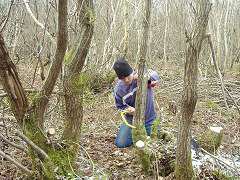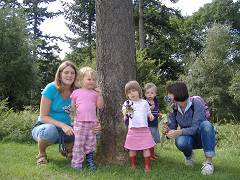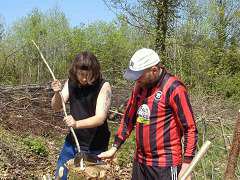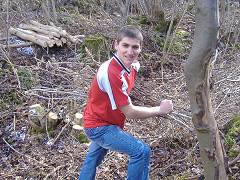Summary




Do woodland activities help disadvantaged communities improve their health and get skills training?
Summary
Wye Wood used a community-based health development worker to engage with key disadvantaged communities in rural areas and encourage them to get involved in walking, coppicing, conservation activities and rural crafts. Forest Research evaluated the project to identify the impact of this work for local people and communities.
Key findings
- Small numbers: the project reached relatively few people – around 300 people have accessed public events
- Benefits: participants benefited socially, mentally and physically from their involvement
- Significant impact: the project has had a large impact on the lives of some people; some participants gained an open College Network qualification in coppicing and coppice products
- Hard-to-reach: success depends on work to build contacts with professionals to identify hard to reach groups, such as those with mental health problems and mothers with young children
- One-off events: good for attracting larger crowds and promoting woodland use, but these people tend to be already physically active and not part of hard-to-reach groups
Publications
Funders and partners
The Wye Wood project was supported by:
- Forestry Commission
- Herefordshire Primary Care Trust
- Shropshire County Primary Care Trust
- Herefordshire Council
- Probation Service
- Hereford Diocese
- Herefordshire Sustain Project
- Greenwood Centre
- Small Woods Association
Contact
Status
2006-2007.
